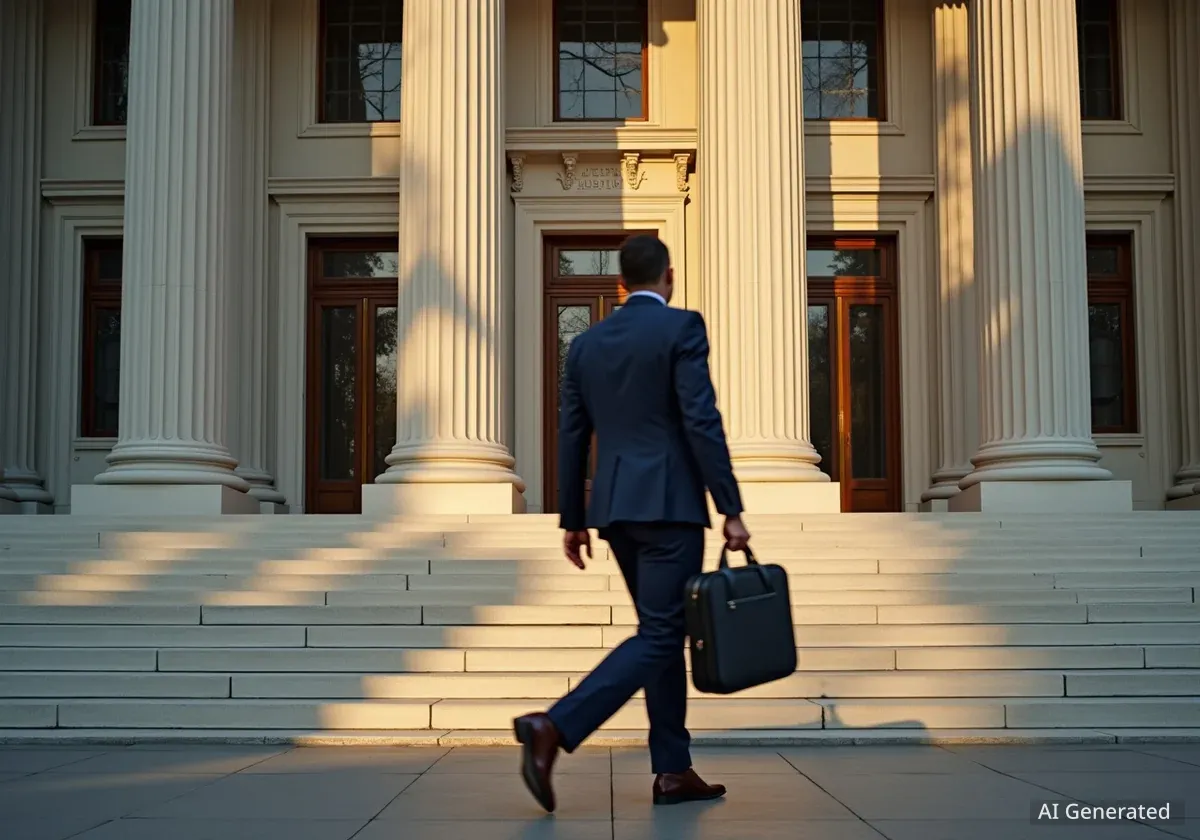A federal judge has ordered the Trump administration to restore 500 National Institutes of Health (NIH) research grants to the University of California, Los Angeles (UCLA). The decision provides significant relief to researchers as the university contests a $1.2 billion settlement demand from the administration over accusations that the campus tolerates antisemitism.
Key Takeaways
- A federal judge ruled the Trump administration must reinstate 500 NIH research grants to UCLA, part of a larger dispute over federal funding.
- This order restores a significant portion of the roughly 800 grants, valued at over $500 million, that were frozen in July.
- The broader conflict involves a $1.2 billion settlement demand from the administration, which accuses UCLA of failing to address antisemitism.
- UCLA and University of California leaders, along with faculty and community groups, are actively opposing the administration's actions.
Court Mandates Reinstatement of Critical Funding
In a major development, U.S. District Judge Rita Lin issued a preliminary injunction compelling the federal government to reverse its suspension of 500 NIH grants at UCLA. This ruling is the latest in a series of decisions that have systematically dismantled the administration's freeze on the university's research funding.
The latest order, combined with a previous one in August restoring 300 National Science Foundation (NSF) grants, means nearly all 800 science grants suspended in July have now been reinstated. The total value of this frozen funding exceeded $500 million.
These grants are essential for a wide array of scientific research. They support studies on life-saving medications, dementia, heart disease in rural communities, and robotics education. Furthermore, the funding is a vital source of income and training for graduate students who represent the next generation of researchers.
Timeline of Grant Restorations
Judge Lin's decisions have progressively restored funding to the University of California system:
- June: Initial injunction restored 114 NSF grants and others from the EPA and National Endowment for the Humanities across all UC campuses.
- August: An additional 300 NSF grants for UCLA were ordered to be reinstated.
- September: The latest order restores 500 NIH grants, along with several Department of Transportation and Department of Defense grants.
The court has given the Trump administration's lawyers until September 29 to provide a report confirming compliance with the orders to restore all affected grants.
The Administration's Allegations Against UCLA
The grant suspensions in July were justified by letters from the NSF and NIH. These letters accused UCLA of several policy violations, which mirror broader policy goals pursued by the Trump administration.
The primary accusations included:
- Race-Based Admissions: The agencies claimed UCLA's "holistic review" process, which considers factors like neighborhood and family income, is a form of race-based admissions. This is despite California voters banning the practice in public universities in 1996.
- Transgender Athletes: The university was criticized for allowing transgender women to compete in women's sports.
- Antisemitism: The administration alleged that UCLA has not done enough to combat antisemitism on its campus.
Project 2025 Connection
The policy points raised by the federal agencies in their letters to UCLA align closely with the policy playbook outlined in Project 2025, a publication from conservative groups that has influenced the Trump administration's second-term agenda for higher education and the federal government.
The letter from the National Science Foundation stated its belief that UCLA's admissions process "is a transparent attempt to engage in race-based admissions in all but name." The NIH sent a nearly identical letter. These claims come after a 2023 Supreme Court decision that overturned the use of race in college admissions, though it allowed for applicants to discuss their racial identity in personal essays.
Legal Reasoning and Broader Implications
Judge Lin's ruling centered on a key legal principle. She determined that the administration violated the Administrative Procedure Act by terminating the grants en masse without providing specific, individual reasons for each cancellation. Federal agencies are required by law to detail their reasoning for such actions.
The decision also navigates a recent U.S. Supreme Court ruling that appeared to complicate challenges to grant terminations. The high court suggested that the Court of Federal Claims was the proper venue for restoring funding. However, Judge Lin noted a critical detail: only universities, as the contract holders, can sue in that court, not individual researchers.
"The district courts are the only forum where the UC researchers could defend their constitutional and statutory rights... This Court will not shut its doors to them," Judge Lin wrote in her order.
She rejected the government's argument that individual researchers had no legal recourse if their universities chose not to sue. She described this view as "extreme," pointing out it would leave researchers powerless even in hypothetical cases of blatant discrimination.
University and Community Push Back
The actions by the Trump administration have been met with strong opposition from within the University of California system and the wider community. Several UC faculty groups and unions have filed a lawsuit to block the administration's settlement demands, calling them an "unlawful threat" designed to "illegally coerce the UC into suppressing free speech and academic freedom rights."
Regarding the antisemitism claims, which followed a Department of Justice report, UCLA has pointed to its own efforts to address the issue, including the formation of a campus task force. Meanwhile, many Jewish community members have criticized the administration's approach.
In a public letter, over 600 Jewish professors, students, staff, and alumni from the UC system called the administration's actions "misguided and punitive."
The letter stated, "Cutting off hundreds of millions of research funds will do nothing to make UCLA safer for Jews nor diminish antisemitism in the world."
The Jewish Public Affairs Committee of California also issued a statement acknowledging the progress UCLA and the UC system have made to improve campus safety, asserting that the administration's demands do not help Jewish students.





